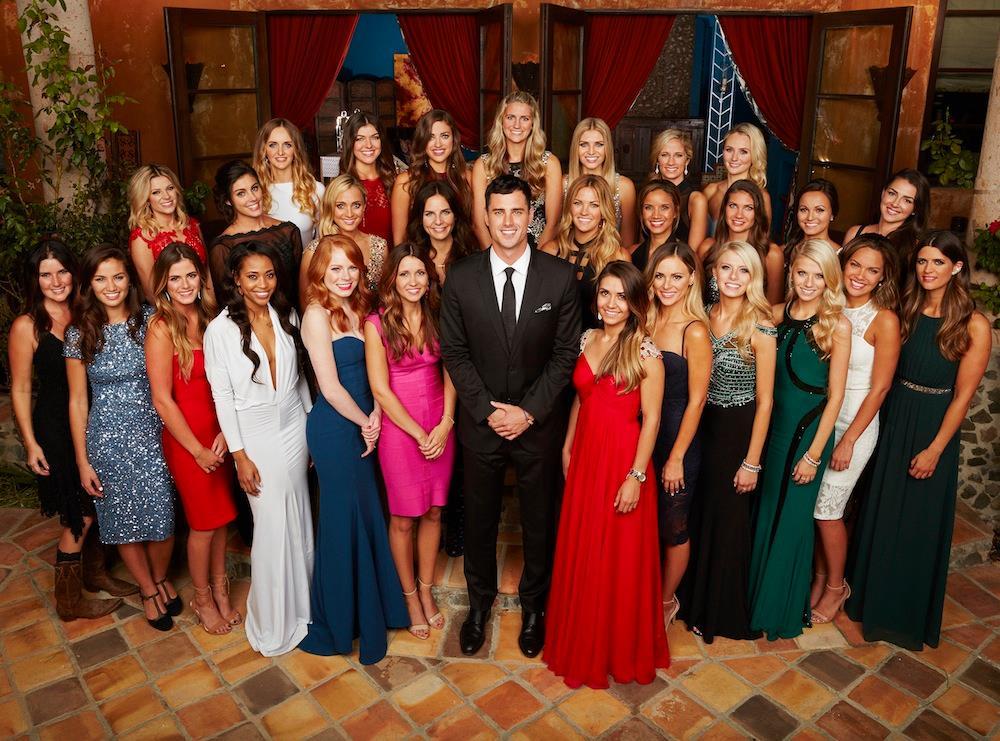facebook.com/TheBachelor
ABC’s “The Bachelor,” which has had 10 seasons, brings reality TV to the next level by making love a topic of entertainment.
When it comes to love, some will go to extreme lengths to find it. Whether it’s downloading Tinder or attending speed dating events, there are multiple ways to find love nowadays. But for those particularly desperate love-seekers, there’s “The Bachelor.”
“The Bachelor” is television’s most popular reality show. The show started in March of 2002 and has gained an almost cult-like following. Viewers tune in every season to watch 25 women compete for the love of one man. Each week, one or more women are eliminated to narrow down who the Bachelor gives his final rose to, and maybe even an engagement ring too.
Let’s just take a minute to talk about how insane this is: America has been obsessed with watching women, season after season, make fools of themselves fighting other women for a chance at a relationship with a man, which most likely won’t last (out of the 19 seasons of the show, only a few couples have remained together). Viewers are even encouraged to make a fantasy draft on who will make it to the final episode.
The show is currently in its twentieth season, and ABC is boasting its celebration of “20 years of love”- more like 20 years of extremely unhealthy relationships and of depicting women as insane and overly-emotional. Even “The Bachelor’s” sister show, “The Bachelorette,” depicts the female as the one upset by the decisions made, even though she is the one making them. Sure, the guys might shed a tear after being eliminated, but watching a woman blubber “I was falling in love with him,” with mascara running down her face is apparently more entertaining.
Women who watch this show are basically being told that you have to be the best to get picked, to win and to be loved. You have to look a certain way, be a certain size (the average contestant is a size 6), and have a certain attitude to deserve love. If you don’t fit into the criteria, you don’t deserve love. A past contestant said she “really deserved this,” telling audiences that love is something to be won like a fancy car or the lottery.
Gender stereotypes are not the only thing wrong with this show. A simple google search on “The Bachelor” will show that ABC doesn’t treat its cast members very well.
For example, not one of the contestants are compensated for their time on the show, which no doubt interferes with their careers. Only the bachelor or bachelorette is paid, the sum being over $100,000.
The women are told to buy their own dresses for every episode of the show. They are also told that they can’t wear the same thing twice. Because of this rule, some women cash in their 401k’s early to be able to pay for them.
During the seven weeks of filming (yes, it only takes seven weeks to find love), the contestants are not allowed to have their phones, computers, books, magazines or music- though they are given plenty of alcohol.
When the couple is given time in the “fantasy suite,” the network doesn’t even supply condoms. A former contestant alleged that the producers would call the girls names and curse at them to get good footage.
The rose ceremonies take hours to shoot. Contestants are forced to stand in place sometimes until 6 a.m. to get all of the shots the producers need. The producers even make flashcards with pictures for the Bachelor to help him remember the names of each woman.
Relationships are hard work. They take time, conversation and dedication to each other to build. This show puts people in fantasy-like situations on unrealistically romantic dates where a few words are exchanged, and in no time the couple resorts to making out. How viewers are led to believe that the love supposedly being built is anything but physical is insane.
“The Bachelor” aids the belief that love is all roses, romantic outings and fun. Though many tears are shed on this show, they’re never for anything hard or worthwhile. Love is easy in the world of “The Bachelor”; the hardest part is picking which beautiful woman to have it with.
You don’t have to be a feminist to see that this show reduces women to a commodity and men as the ultimate prize to be won. The main viewership of this show is high school to college-age women, mostly young and impressionable minds ready to be twisted and told that they are not good enough.
“The Bachelor” and programs like it are tearing away creativity and honesty and replacing it with stupidity, telling its viewers that this is what is desired: To be tan and a size 6, to have silky hair and perfect makeup and to be loved for your looks instead of your personality.



































